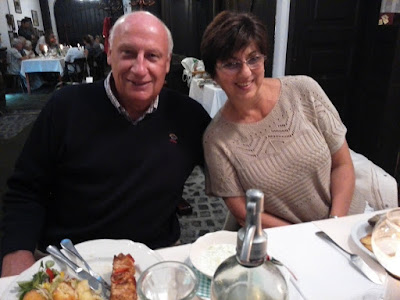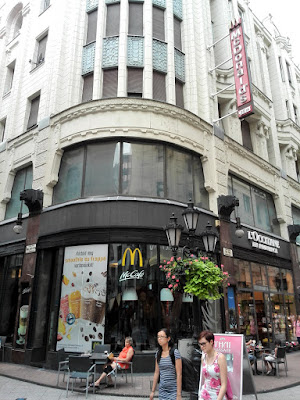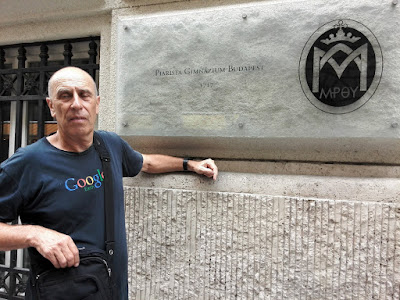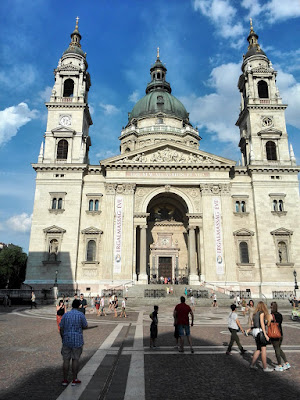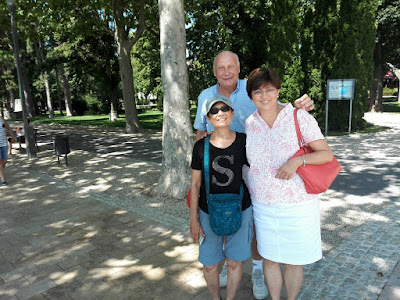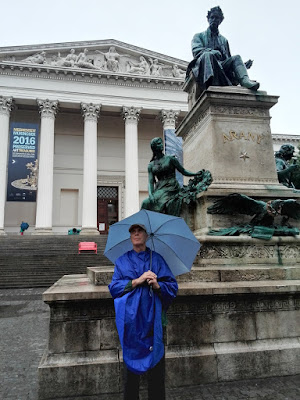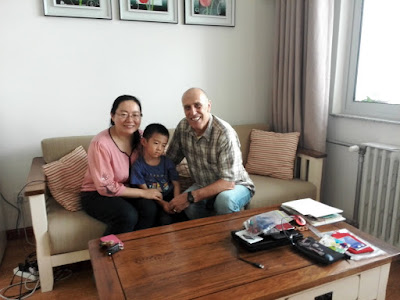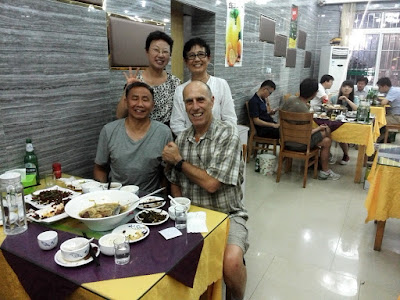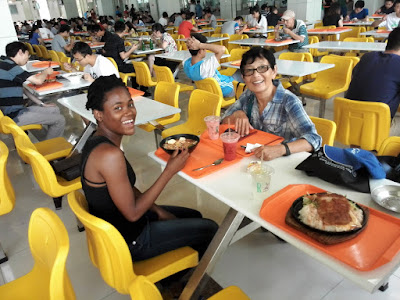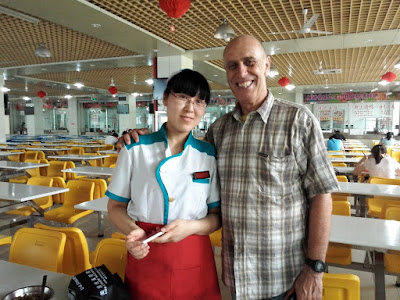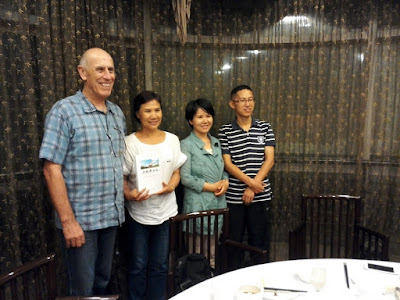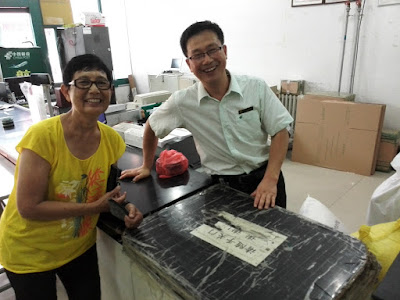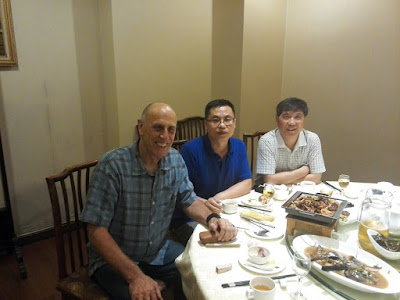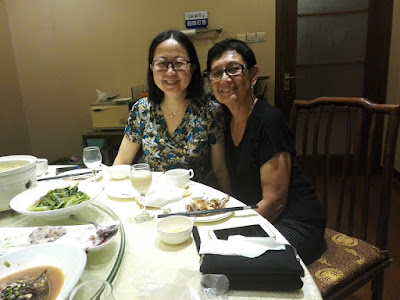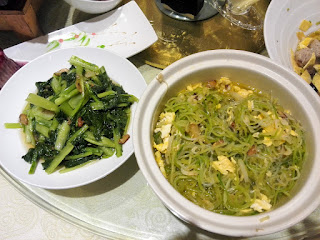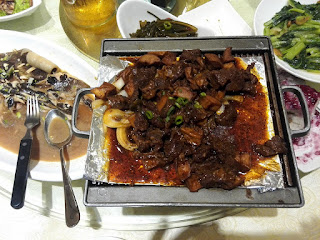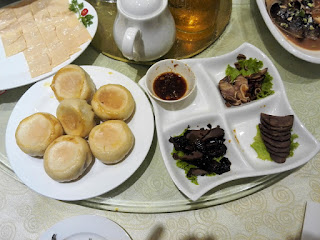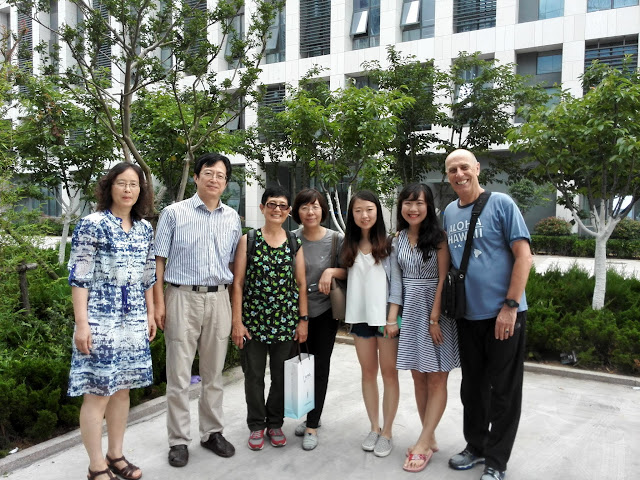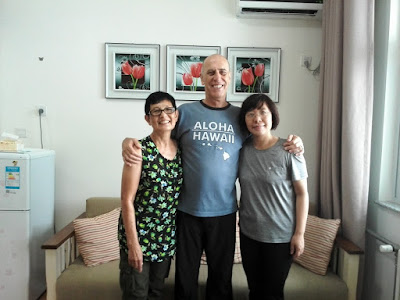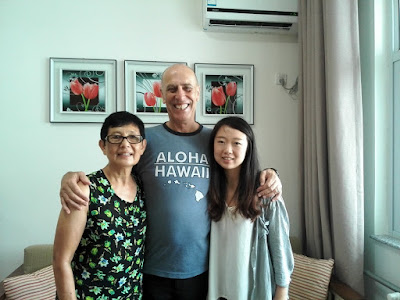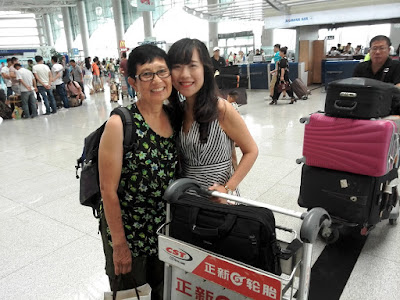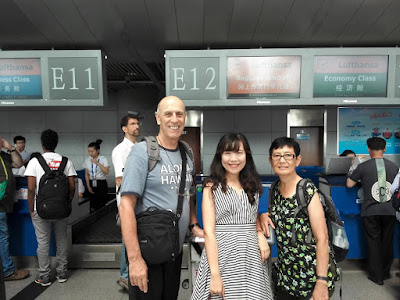Gentlefolk,
Vera & I visited Hungary from 10 to 31 July 2016. This post describes our time there.
My father, Akos Olah, was Hungarian. He was born in
1912 in Kassa which was then in North-Eastern Hungary. In 1920 the family was forced
to flee to Budapest when Austria-Hungary was split up after WW1 (Kassa became
part of Slovakia and was renamed Kosice).
During WW2 he served in the Hungarian Artillery in
an anti-aircraft unit protecting Budapest. Later he was an American
prisoner-of-war in Bavaria and then his status changed to “Displaced Person”. He met my mother (a German) and they had 3
children. The situation in Germany
looked hopeless, so together with hundreds of thousands of other “DPs”, they
decided to try their luck in another country and arrived in Australia in
January 1951.
Dad died of cancer in 1990. Although he had spent the
largest chunk of his life in Australia he never lost his Hungarian-ness (is
that a word?). Dad was an only child and
when he died we lost touch with that side of the family.
Vera and I made two short visits to Budapest in the 1980s when it was still part of the Soviet-bloc, and didn't like what we saw at that time. But my curiosity about Hungary continued and we decided
to spend 3 weeks there to have a good look at the country and culture.
We left Qingdao on Saturday 9 July 2016, on a direct
flight to Frankfurt. Stayed overnight in a hotel at Frankfurt Airport, then on
Sunday 10 July flew to Budapest.
We had seven days in Budapest, then went touring:
first to Slovakia (Bratislava and Kosice), then a number of regional cities in
Hungary: Debrecen; Gyula; Szeged; and Pecs; finally back to Budapest for
another 4 days before we caught the train to Dresden.
Hungary
– in summary
Area: 93,030
km2 (of which water represents 0.74%)
Population: 2016 estimate 9,830,485; population density
105.9/km2
Key dates in Hungarian history
895 AD
|
Foundation of Hungary (tribes united)
|
25 December 1000
|
Proclaimed a Christian (Catholic) Kingdom
|
29 August 1526
|
Battle of Mohács, defeated by Turks
|
2 September 1686
|
Liberation of Buda from Turks
|
15 March 1848
|
Revolution of 1848 (against Hapsburgs of Austria)
|
20 March 1867
|
Establishment of Austro-Hungarian Empire (Austria
finally accepted Hungary as equal partner)
|
4 June 1920
|
Treaty of Trianon (following defeat in WW1 Hungary
lost two-thirds of its former territory)
|
23 October 1989
|
Foundation of Third Republic (following 40 years
of Communist Party rule)
|
1 May 2004
|
Joined the European Union
|
Impressions
of Hungary
Of course you can’t really know a country in just 3
weeks, but here are some impressions we formed after 10 days in Budapest and 20
days travelling around:
Budapest, with a population of about 2 million
(20% of the total), dominates every aspect of Hungary, socially, culturally, and
economically. The second largest city is Debrecen with a population of only
250,000.
|
Budapest: grand, elegant, cosmopolitan. Lots of
beautiful old buildings which have been renovated; lots of lovely churches;
wonderful Parliament Building. Many “hot baths”. The Danube is a major focal point (much more
so than in Bratislava).
|
The Hungarian language (“Magyar”) is unique and difficult. Our father taught some Hungarian to us kids
as we were growing up and I thought that would be helpful. But after 3 weeks
I could hardly string together a simple sentence. Tough.
|
There are relatively few Asians in Hungary, especially
outside Budapest. In Budapest we saw some
Asian restaurants, and many “Thai Massage” establishments.
|
Budapest has lots of restaurants and cafes many
with attractive outdoor seating; the set ‘lunch menus’ were good value;
actually food prices seemed about half those in Australia. Pork is very
popular. There was an amazing
selection of cakes and ice cream – Hungarians obviously have a sweet
tooth. Restaurants in Budapest add a
10% service charge, but not in other centres.
|
We didn’t see many public laundries or small
hairdressers. Lots of money changers (much easier and better rates, than
going to normal banks).
|
Public toilets have an entry fee – our daily
challenge was to find alternatives so that we could avoid paying. Same in
Germany.
|
Hungary still uses its own currency, the Forint.
It is in the EU, but hasn’t adopted the Euro yet (unlike Slovakia, which uses
Euro).
|
The Great Hungarian Plain covers the Eastern half
the country; it is dead flat, with fertile soil and intensive agriculture.
Lots of villages – but many seem in a state of decay (young people head for
Budapest).
|
Most young people speak reasonable English. Many
Hungarians both male and female smoke, including among the young. Many have
tattoos.
|
Hungary is located in the cross-roads of Europe
and that shows in the people. It was
difficult to identify a typical Hungarian – such a mix. I thought there would be more black-haired
people, but actually the predominant colour seemed to be brown with a good
smattering of black and blond.
|
We enjoyed the three weeks in Hungary and can
recommend it as a holiday destination.
Prices of accommodation and food are reasonable, there are lots of
interesting things to see and do, and personal safety is good.
Here are some photos of our time in Budapest. I'll do a separate post with photos of Slovakia and other parts of Hungary.
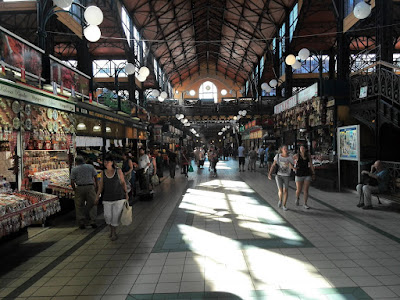 |
| Our friend Denes Hunkar met us on arrival and took us to the Kalvin Apartments in Ulloi Ut, near Kalvin Ter (Square). The next morning we visited the famous old Central Market which was not far away. |
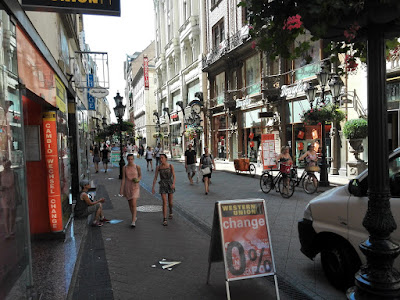 |
| Lots of money changers everywhere. We found they were more convenient and better rates than normal banks. |
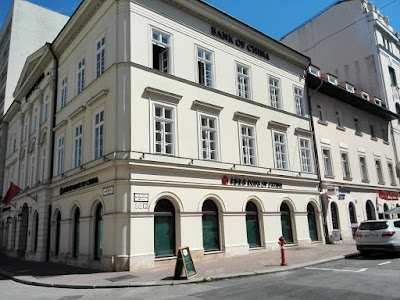 |
| Having just come from China, the Bank of China office caught our eye. |
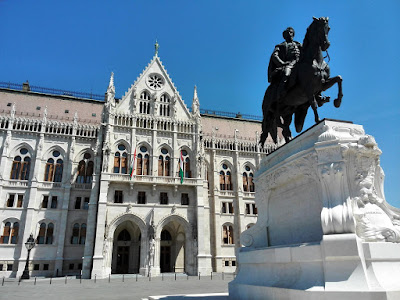 |
| The magnificent Parliament Building on the banks of the Danube. We did a tour of the Building - most impressive. |
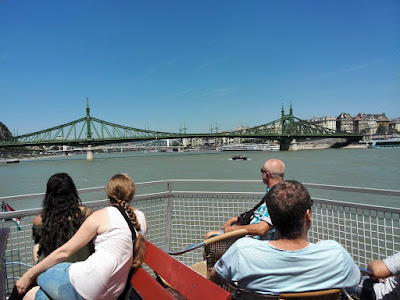 |
| We took a local ferry up the Danube - much less expensive than a commercial tour. |
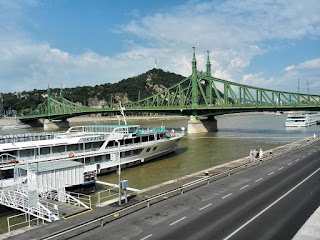 |
| Lots of luxurious tourist boats were anchored along the Danube. The trip from Amsterdam to Budapest has become very popular. |
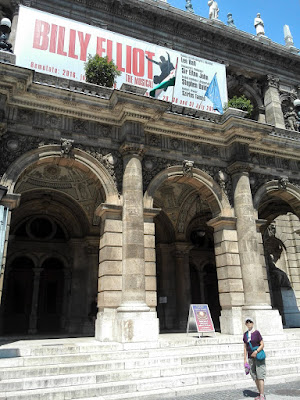 |
| The grand old Opera House on Andrassy Boulevard. We did a tour of this marvellous old building. |
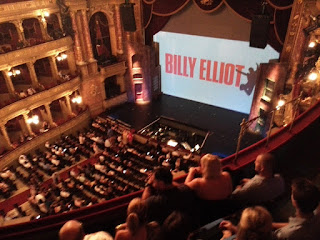 |
| Later we went to a performance of the musical "Billy Elliot" in the Opera House. We sat up "in the gods" but the tickets were a reasonable $15 each. Wonderful acoustics and atmosphere. |
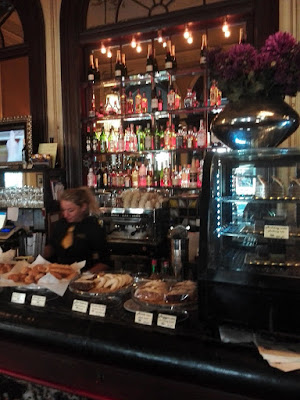 |
| This lovely old cafe was more than 100 years old. Elegant. |
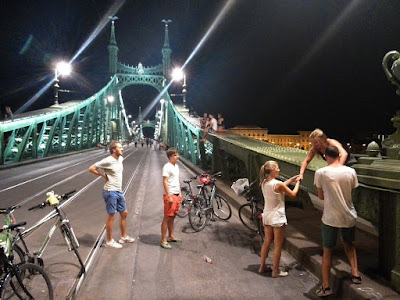 |
| The bridge near the Central Market was being renovated - a great place for young people to party at night. |
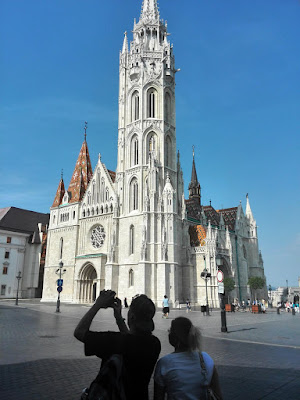 |
| Wonderful St Mathias Cathedral in Buda. |
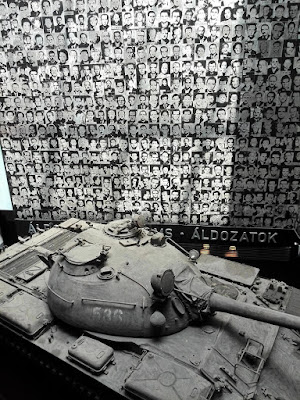 |
| The "House of Terror" Museum tells the story of the Communist Party's repressive secret police. |
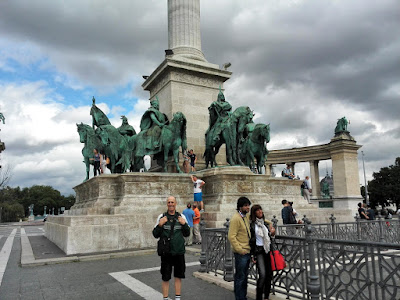 |
| Heroes Square at the end of Andrassy Boulevard celebrates the founding of Hungary by Arpad and the seven tribes. |
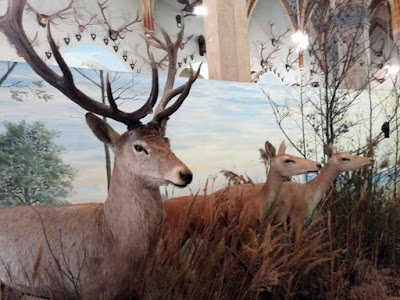 |
| The Agriculture Museum had an interesting section on fauna and floral. |
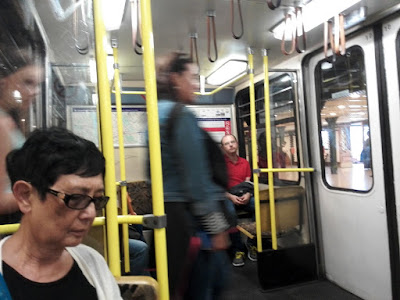 |
| Subway Line #1, under Andrassy Ut. Hungarians are very proud that this was the first subway in Europe (after New York). |
 |
| Typical food - pork is very popular. One of the dishes we had with Denes & Ildiko. |
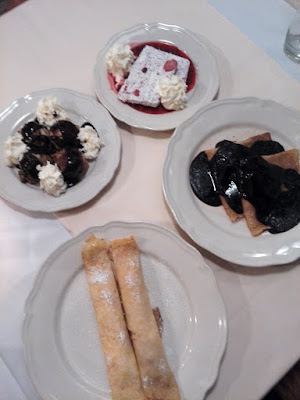 |
| The Hungarians are very good at making desserts - a huge variety, all delicious. |
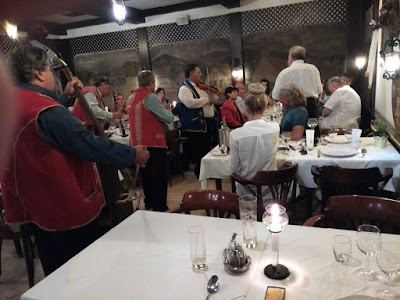 |
| The restaurant we went to with Denes & Ildiko featured a traditional gypsy band. Hungarians love music. |
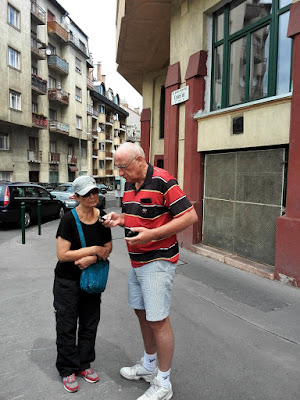 |
| Denes managed to find the apartment block where my father grew up and took us there. |
 |
| We managed to look inside the front entrance of the apartment block where my father grew up. It's been renovated - must have been quite grand 100 years ago. |
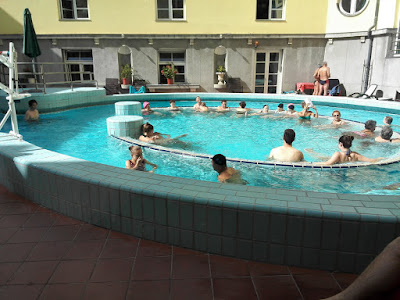 |
| We went to the St Lukas Baths. There are lots of hot springs in Hungary (the first one was established by the Romans 2,000 years ago) and going to a hot bath seems to be a national past time. |
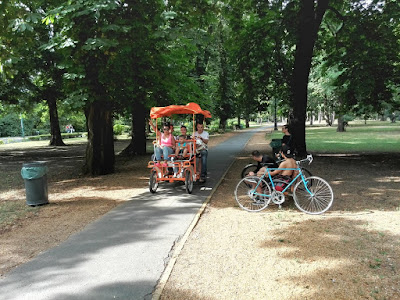 |
| We spent an afternoon exploring Margaret Island, a wonderful leisure centre in the Danube. |
 |
| Our favorite Hungarian restaurant was near the Central Market. This musician entertained diners on a kind of zither. Good food, good atmosphere and good music. |
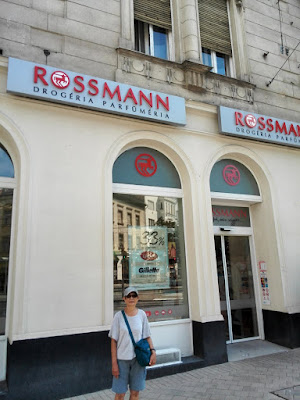 |
| The Rossmann Pharmacy/Chemist chain had shops everywhere in Budapest. |
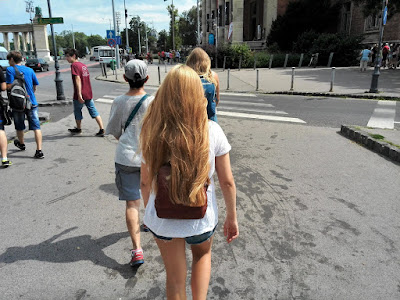 |
| This girl's lovely blond-reddish hair caught my eye. |
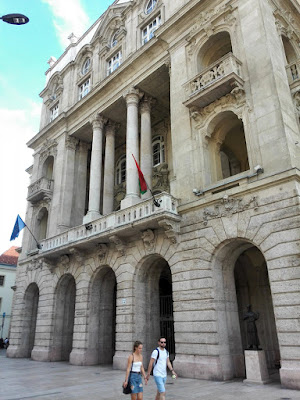 |
| Budapest University's Law Faculty. My father did his undergraduate law degree here (and then his PhD in Szeged). |
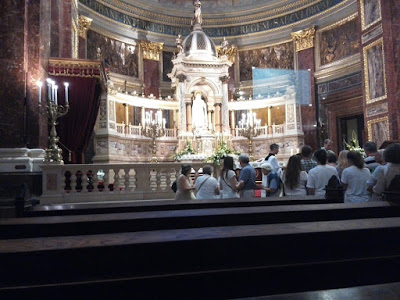 |
| After mass in St Stephen's Cathedral everyone went to the front for group blessings by the priest - a nice touch. |
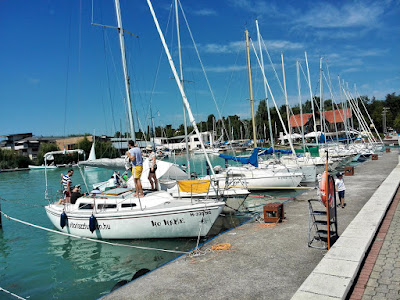 |
| Sailing is very popular on Lake Balaton - my father often spoke about sailing here. |
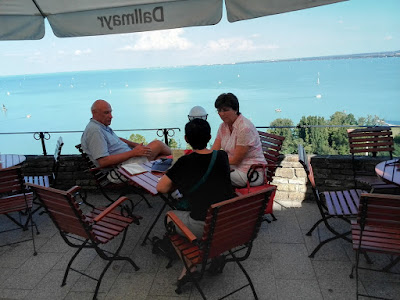 |
| Afternoon coffee & cake on a terrace overlooking Lake Balaton - beautiful. |
We had 10 days exploring Budapest and only scratched the surface. We'd like to return and spend more time in that impressive city. The "Old City" in Buda and Pest is lovely and not too large.
...
We also visited Slovakia (Bratislava and Kosice) and then other regional cities in Hungary - the next post will feature photos on those centres.
...
That's it for this post.
Keep well and keep smiling.
Alex & Vera Olah
Canberra, Australia
24 February 2017
(Actually, we are currently visiting our daughter and her family in Brisbane, Queensland)
